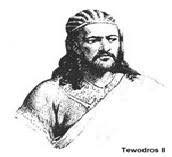Shuruba Hair Style as an Expression of Ethiopia's Culture
Hair is more than just
a physical feature—it is a living expression of culture, identity, and
heritage. In Ethiopia, many contemporary hairstyles are deeply rooted in
history and tradition, transcending mere fashion statements. These styles serve
as testimonies of who we are and where we come from.
A short one or two-hour or so journey in any direction across Ethiopia—north, south, east, or west—reveals
the rich diversity and cultural depth of Ethiopian hairstyles. From highland
villages to bustling urban centers, intricate braiding patterns tell stories
passed down through generations.
One traditional
hairstyle that has endured with grace and pride is shuruba. Originating in
northern Ethiopia, shuruba consists of tightly braided plaits running along the
scalp, often extending freely over the shoulders. Though historically worn by
both men and women, shuruba has transcended geographic boundaries and remains a
beloved style nationwide. Today, it is sometimes enhanced with hair extensions
or adorned with beads and embroidery.
Shuruba holds a
distinguished place in Ethiopian history. It has been worn by nobility,
including emperors like Tewodros and Yohannes, and legendary figures such as
Empress Taitu, wife of Emperor Menelik II. These braided styles symbolized
dignity and power. Today, Ethiopian women—and some stylish young men—continue
the tradition, wearing shuruba with pride, elegance, and a strong connection to
their royal lineage.
Whether tightly woven or flowing freely, shuruba remains a potent symbol of Ethiopian pride and patriotism. While fashions change and societies may imitate fleeting cultural icons, shuruba endures. More than a hairstyle, it stands as a cultural constant—forever fashionable and proudly Ethiopian..





Comments